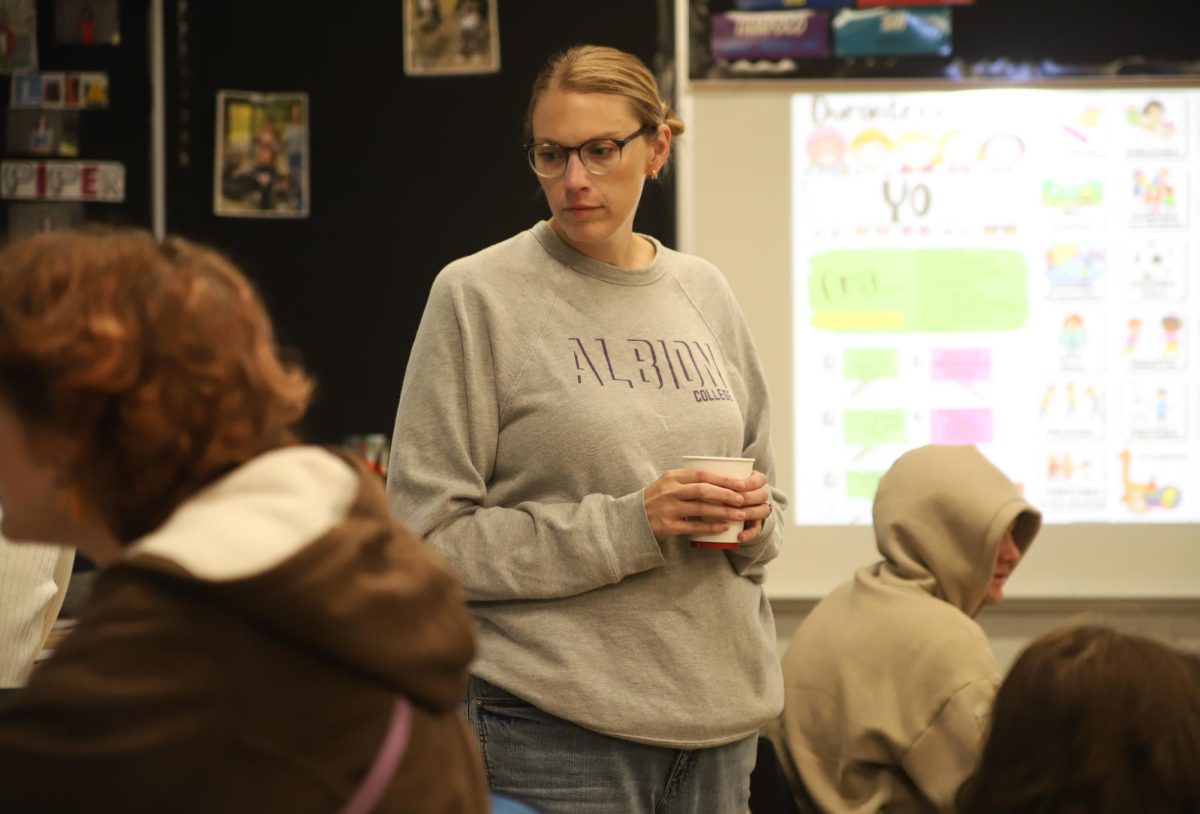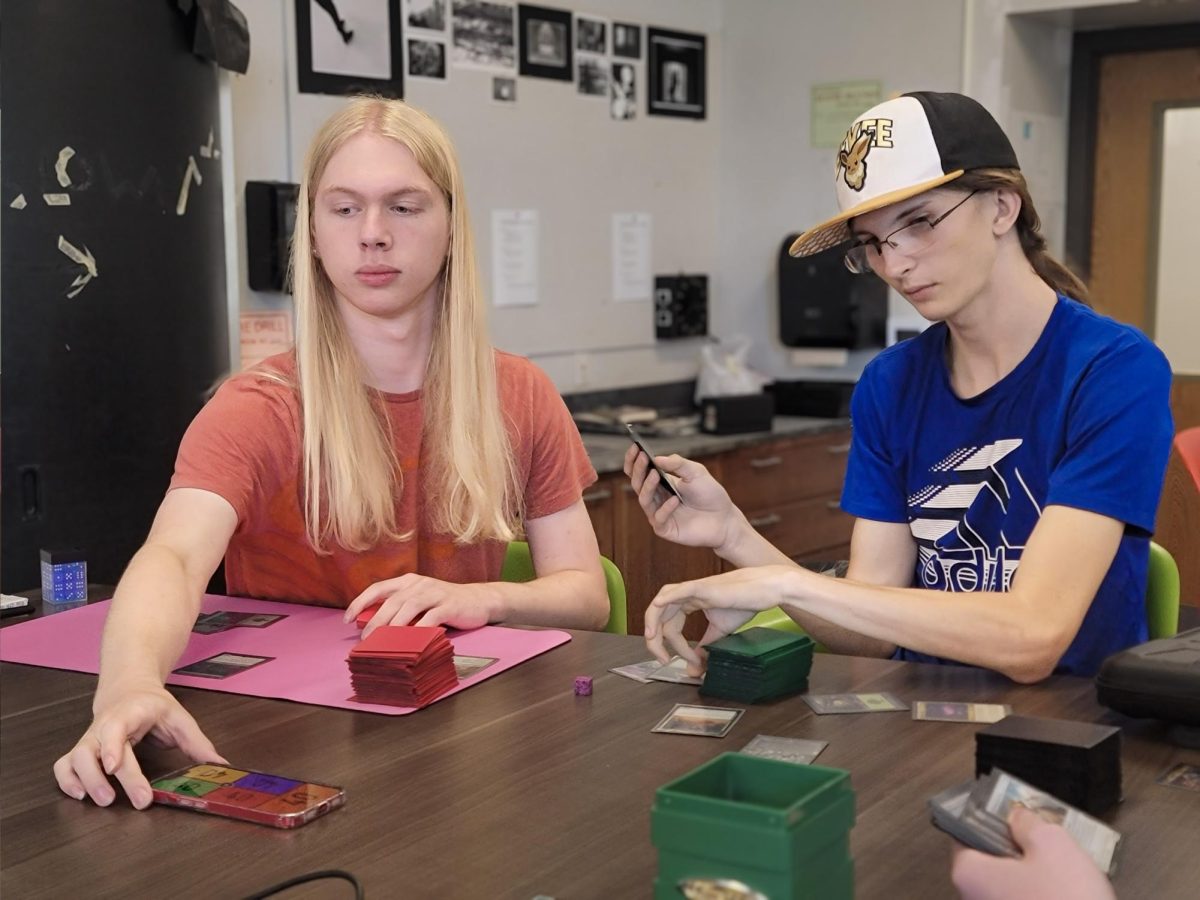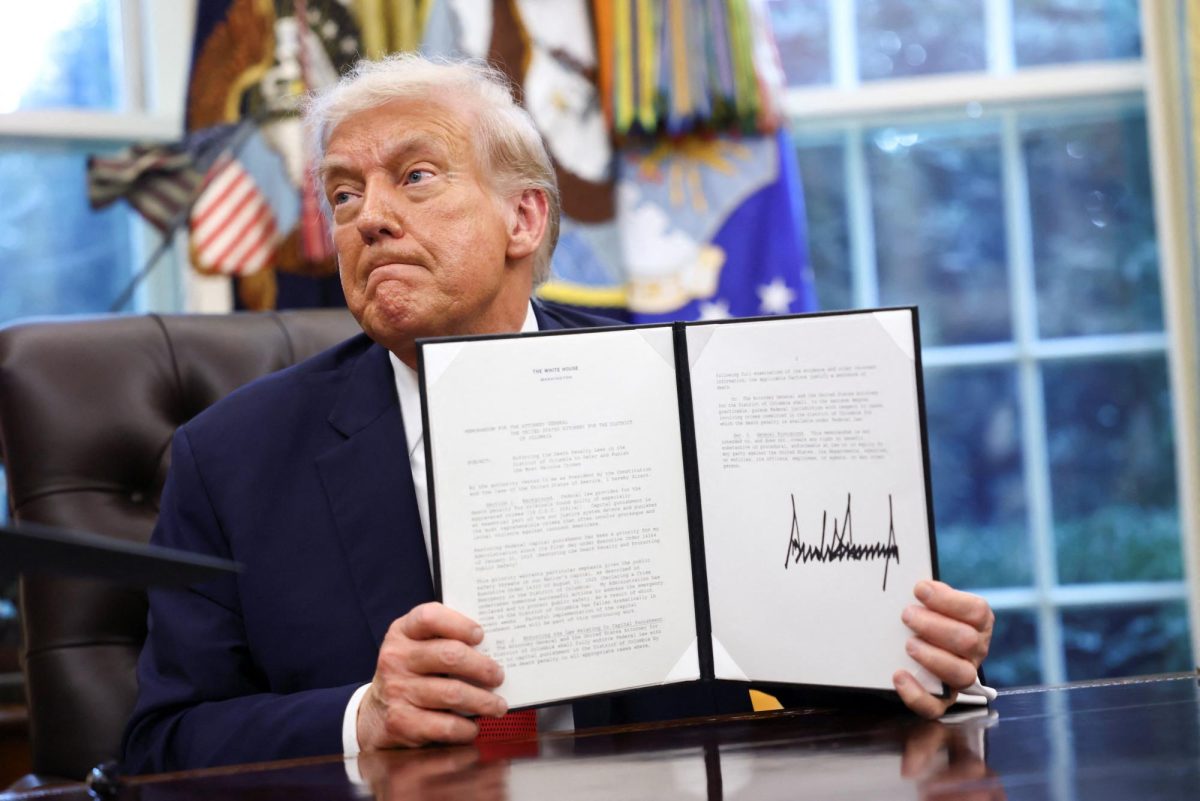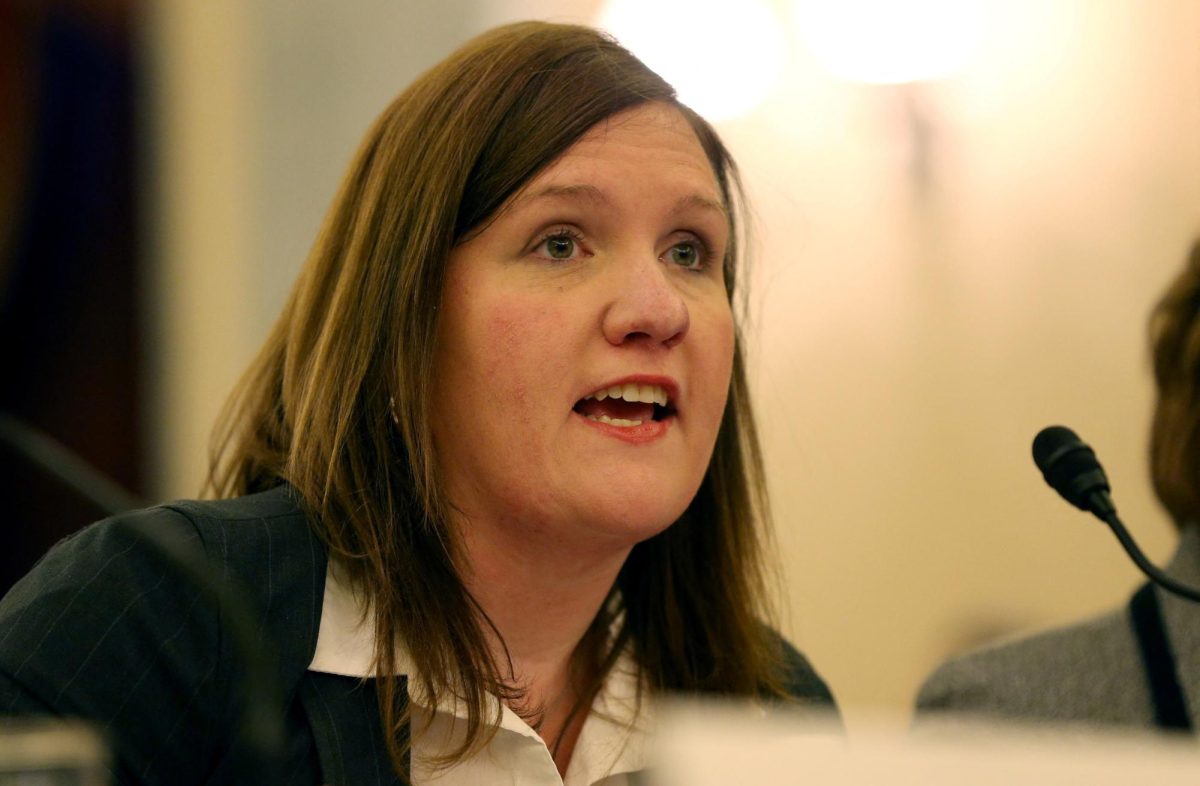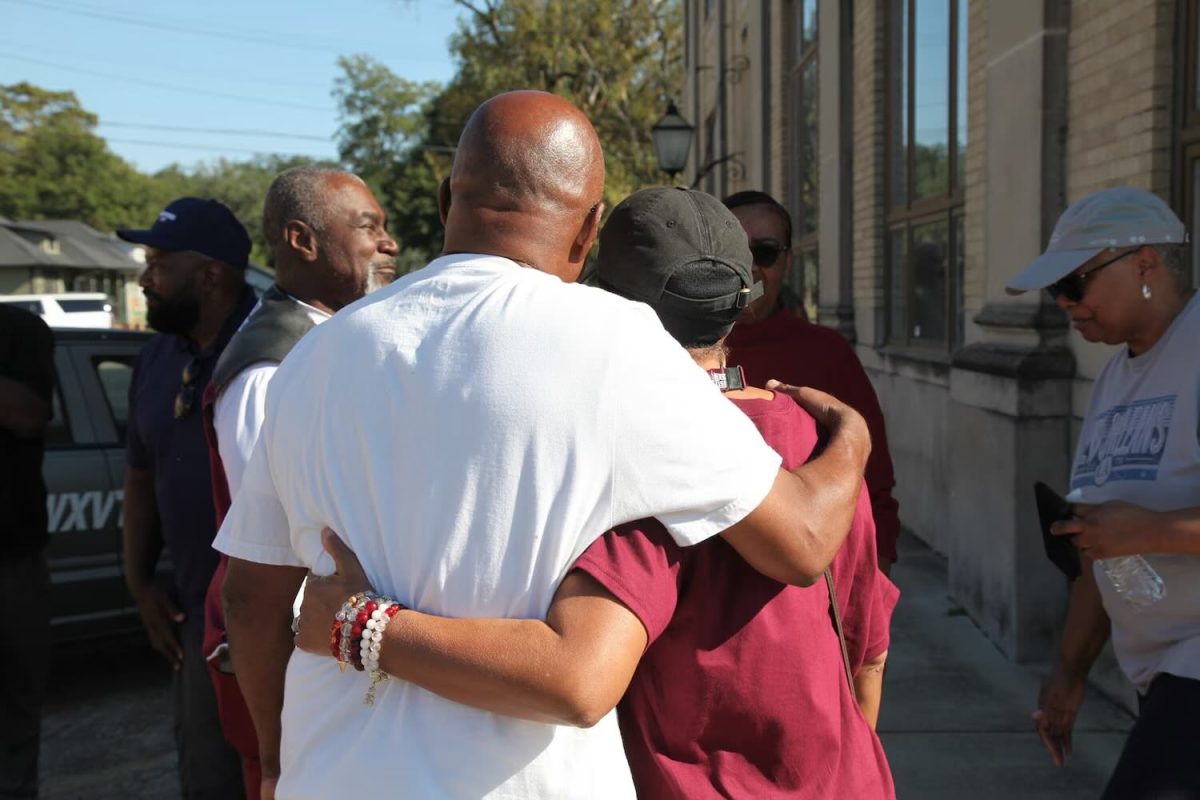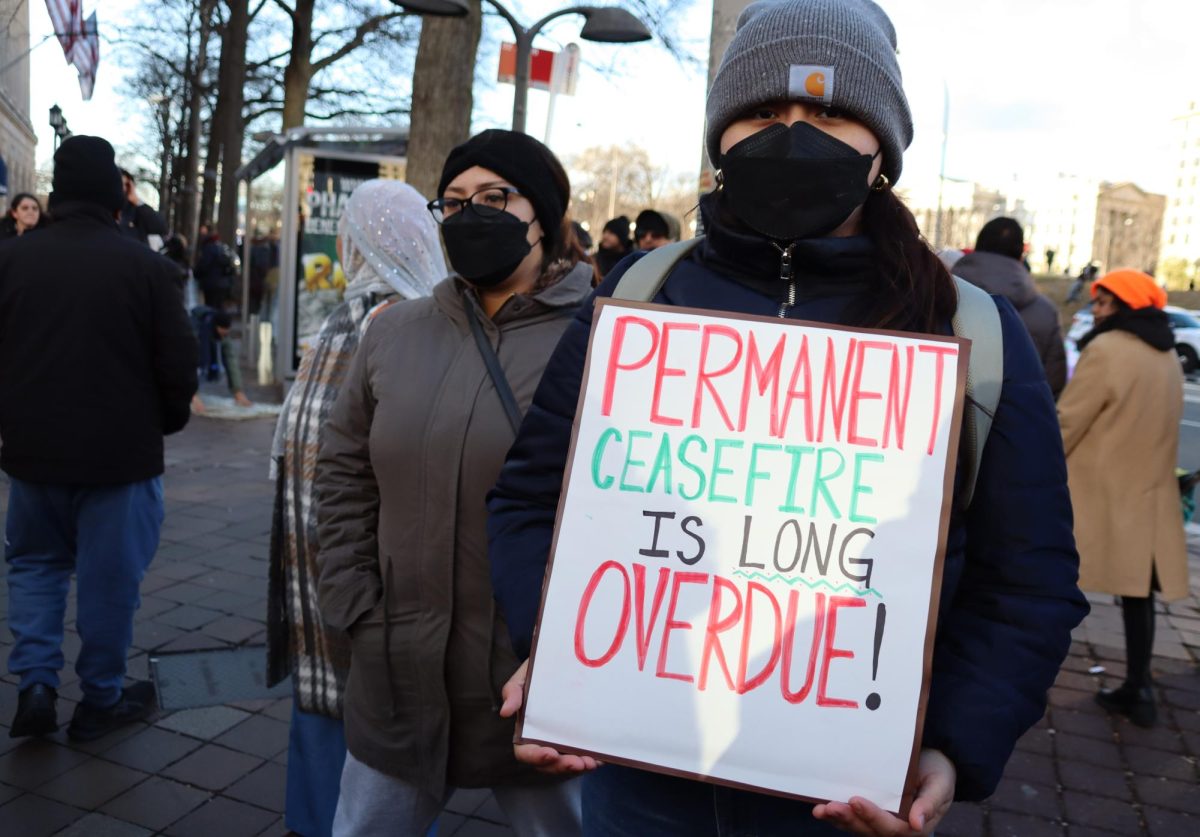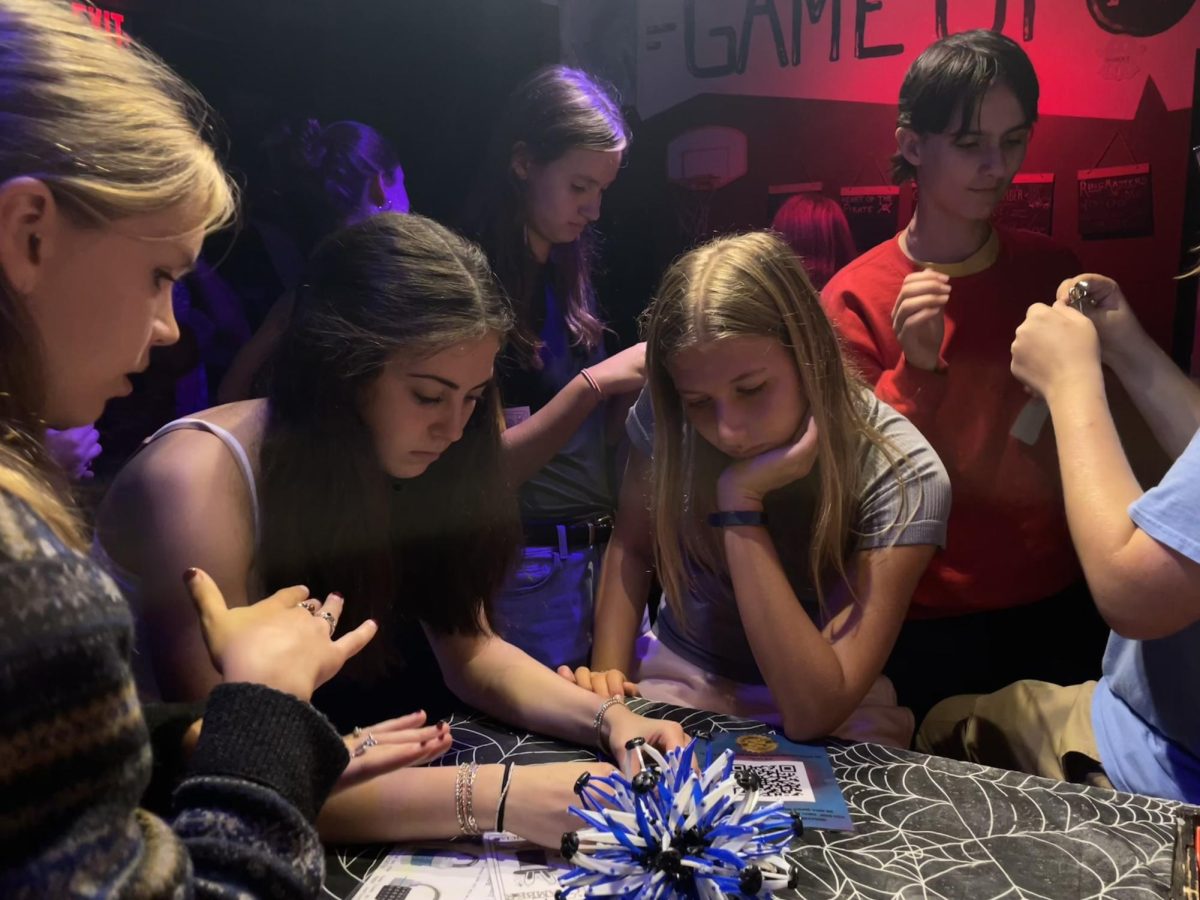As Ella Weinberger finished packing for her trip to New York, her mother, just a few minutes past 9 p.m., asked to join her for a girl’s night on the couch. The first presidential debate of 2024 between Vice President Kamala Harris and former President Donald Trump began. Weinberger hoped to witness a more focused debate than what she saw that night.
“I’d watch them [debates] in prior years once I could understand what was going on,” Weinberger said. “But this year I kind of assumed it would be a little better of a debate than it actually was.”
Weinberger was shocked at the lack of composure from both candidates.
“I guess I was a little confused how people running in the biggest election in the United States were kind of being just a little ridiculous,” Weinberger said. “I had an ‘aha’ moment like, ‘Wow these people are running for president.’”
Maggie Williams, on the other hand, thought that Harris handled the debate very well compared to Trump.
“I just remember when it was Trump’s turn to speak, thinking ‘Oh, what is he going to say this time.’” Williams said.
Eight million new members of Gen Z will be eligible to vote in the 2024 election according to theCenter for Information & Research on Civic Learning and Engagement. Data shows that their motivation to vote is driven by topics such as climate change, economic stability, inflation and housing costs.
Celebrity endorsements of the candidates also play a huge role in swaying Gen Z voters one way or another. This has already happened with Taylor Swift and Billie Eilish endorsing Harris through social media, while Trump won the endorsements of Bryce Hall, Hulk Hogan and more. Around 400,000 people registered to vote through the link Swift provided on her Instagram page.
Rebecca White, a senior at Community, and a first-time voter — having freshly turned 18 — is eager to make a difference, no matter how small.
“I’ve been waiting for this moment my entire life and I’m really excited to help make a change in the world because every vote counts,” White said.
What stood out to her most was Trump’s blatant comments, which were extremely inaccurate. White hopes that someone who lies this much doesn’t win the favor of the nation.
“He’s not mentally able to lead our country,” White said. “I don’t want someone telling me that my pets are going to be eaten.”
Trump claimed that immigrants are eating the pets of the residents of Springfield, Ohio. This curveball Trump threw at the viewers was not only amusing for White but also concerning.
Although they were young and fairly uneducated about the presidential candidates, White remembers herself and her classmates from Summers-Knoll being overjoyed at the results of the 2020 election. She vividly recalls watching Joe Biden’s inauguration alongside her classmates. It was hard to tell if their relief was mostly rooted in the fact that Trump was no longer in office.
Chloe Root, the government teacher at CHS eagerly awaited this debate, given that she felt guilty having watched the previous one. She was excited to watch an experienced attorney debate someone who had somewhat of a different approach. Root had more of an expectation for what the candidates would express and say in comparison to the 2016 debate between Trump and Hillary Clinton. Root recalled previous debates Harris had participated in which gave her a good idea of how she would handle situations. But before 2016, it was hard to get ahead of the game with Trump. While his style was fairly unknown, it quickly became obvious.
As someone so interested in the American government and the flow of the election, Root forecasted the likelihood of different aspects of the debate, which made some things less shocking to her such as the claims Trump was making. However, something she hadn’t predicted was when Harris made a claim about U.S. troops being inactive in active war zones. Root believes that she understands what Harris was trying to say, but she thought it could’ve been phrased differently.
“I thought there were so many things that she was saying that were substantial, and there were probably ways that she could’ve said and gotten that same message across that would have been a little bit more honest,” Root said.
Naturally, teaching government comes along with discussions about the debate in class. Even students who hadn’t watched it were active in the conversation, given that it’s such a big topic. An exciting part about being a teacher is to see students engaging in conversations like this.
“We spent a good 15 minutes at the beginning of each of my government classes talking about it,” Root said. “It was nice to have all my students be excited about it and even the ones who hadn’t gotten to see any of it had heard about it. So there wasn’t anyone totally sitting out of the conversation, everyone was interested.”
The closing statements given by each candidate left Americans on a cliffhanger. What is their next step? Harris plans to invest in small businesses, reinforcing women’s rights to their bodily anatomy, focusing on promoting the middle class and strengthening the backbone of our economy. Trump plans to reinforce the military to protect the nation from external threats and, although disregarding fossil fuels, use energy to its fullest potential in an effort to make America stronger.






